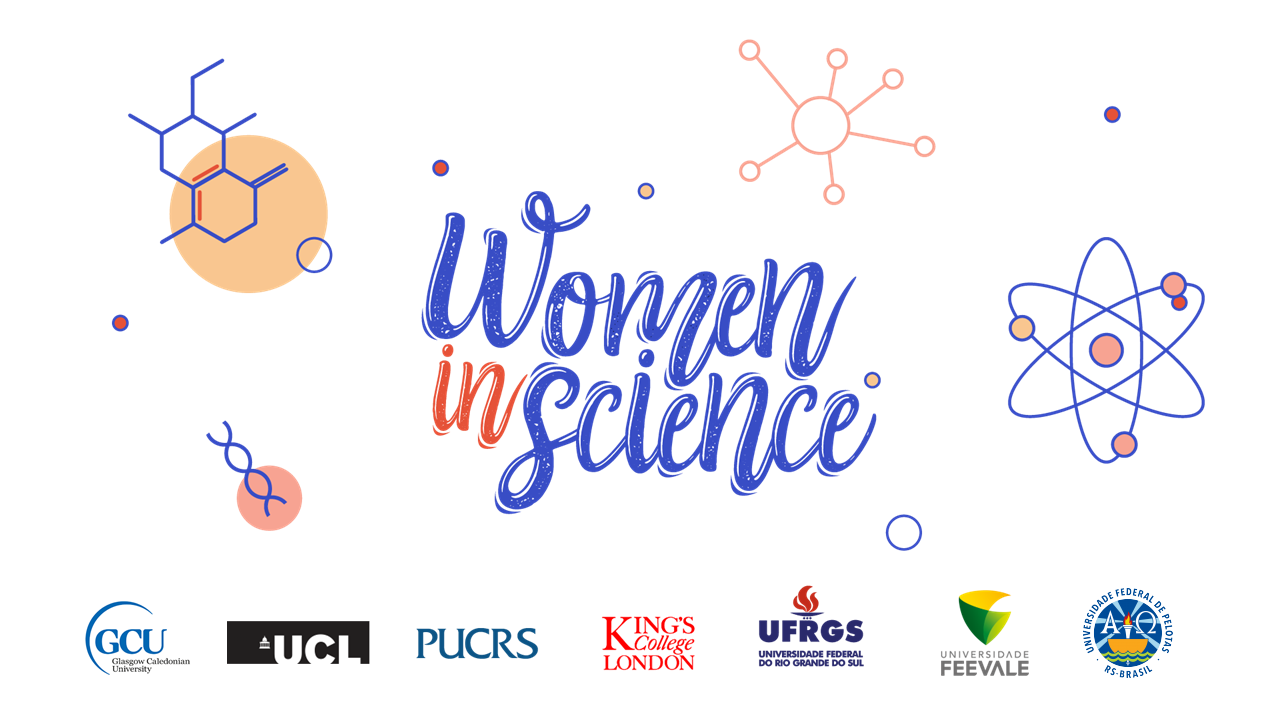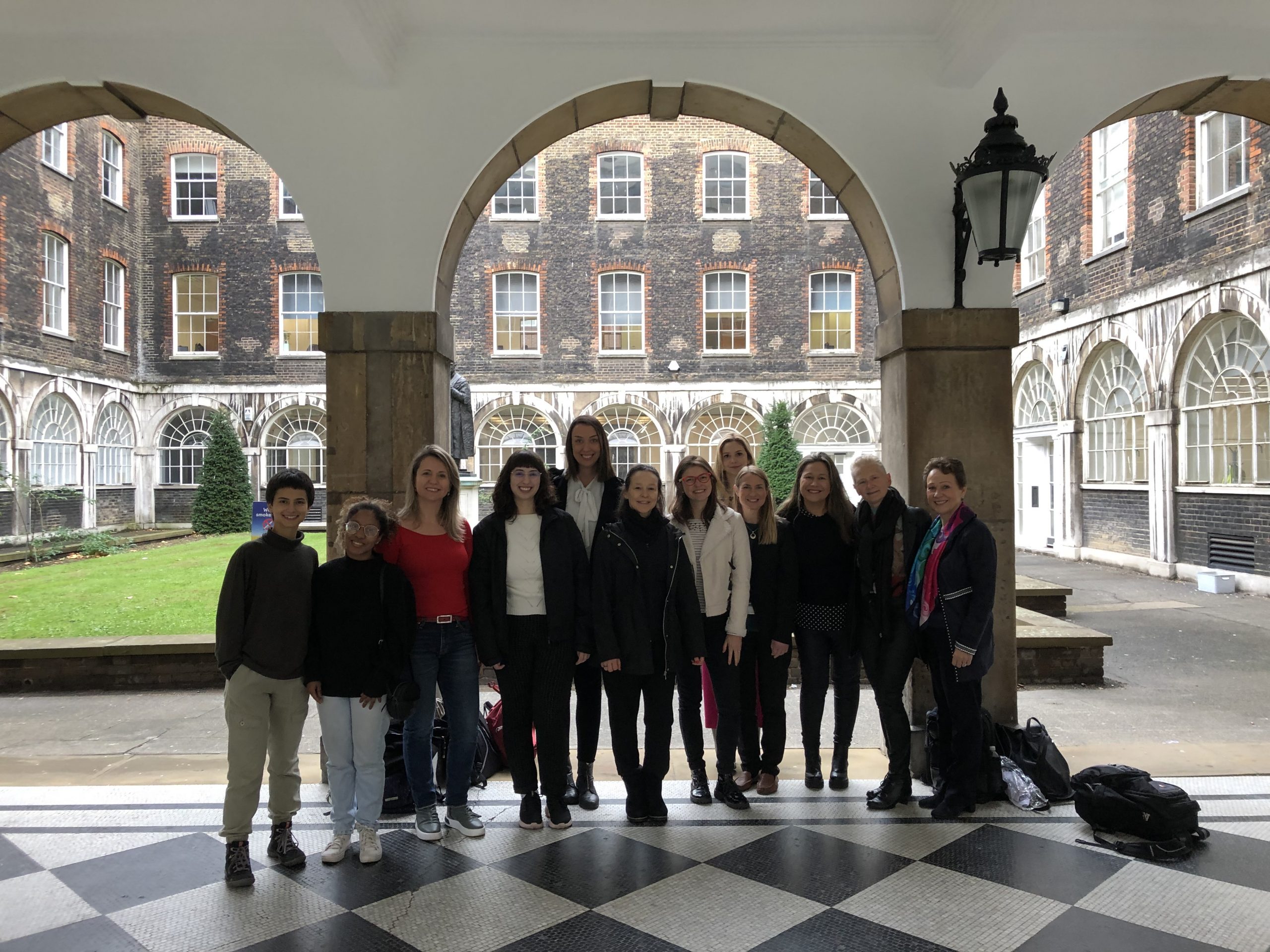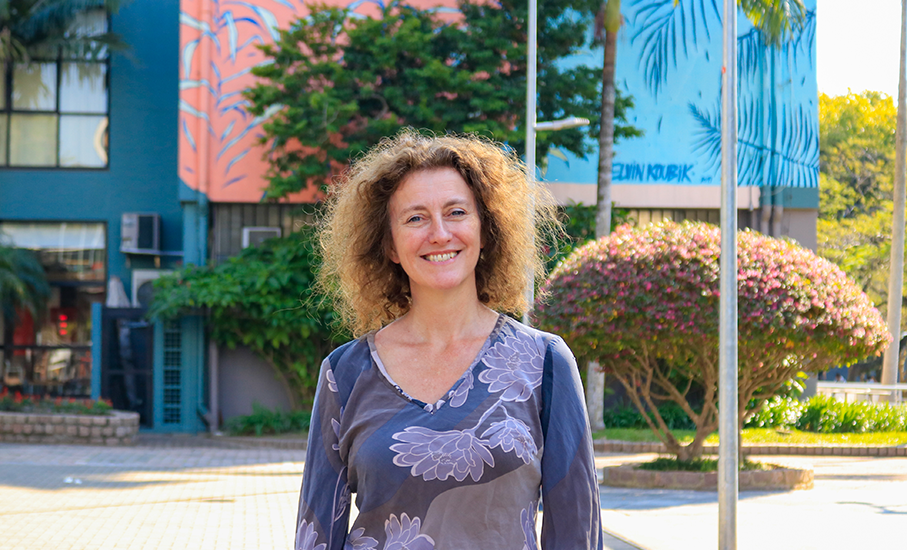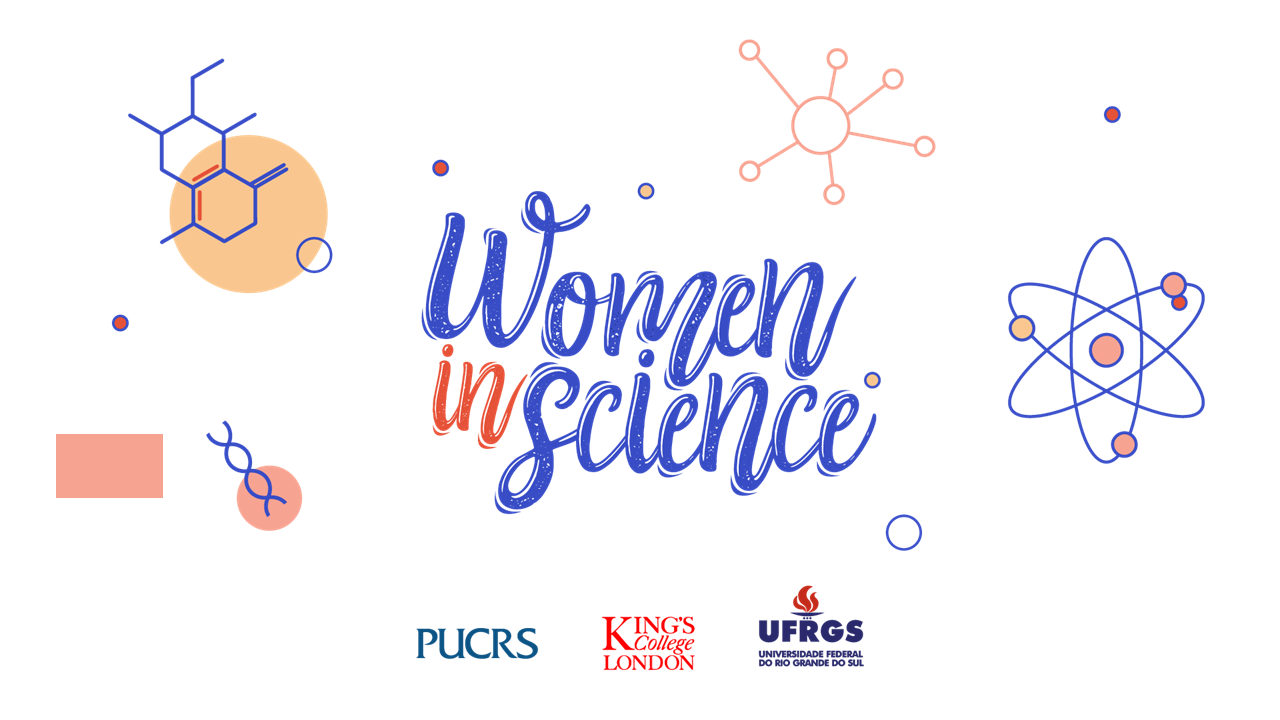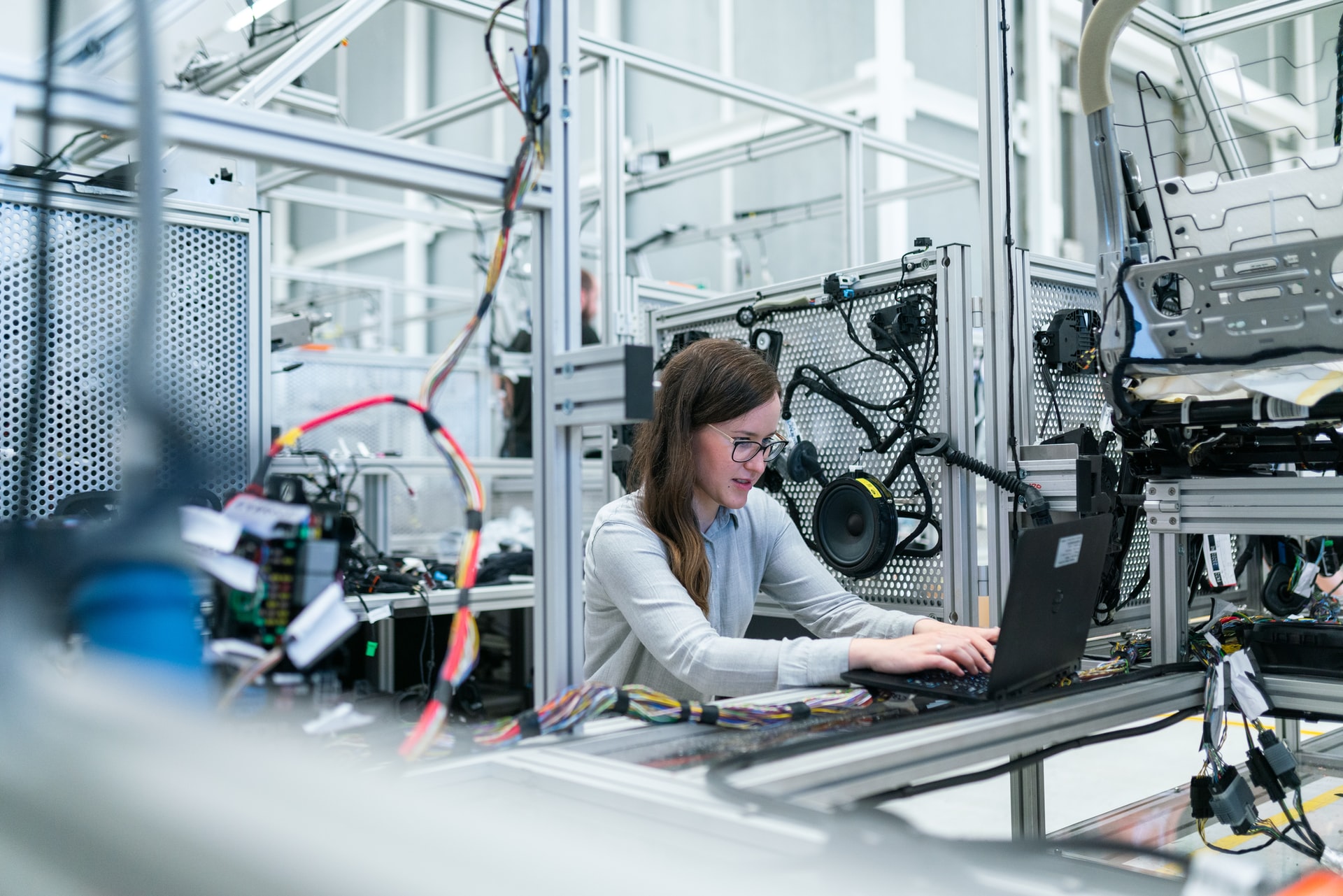Women in Science Symposium gathers institutions in a debate on female representation in careers in science
he event is a part of the international project funded by the British Council, which brings together 7 British and Brazilian universities
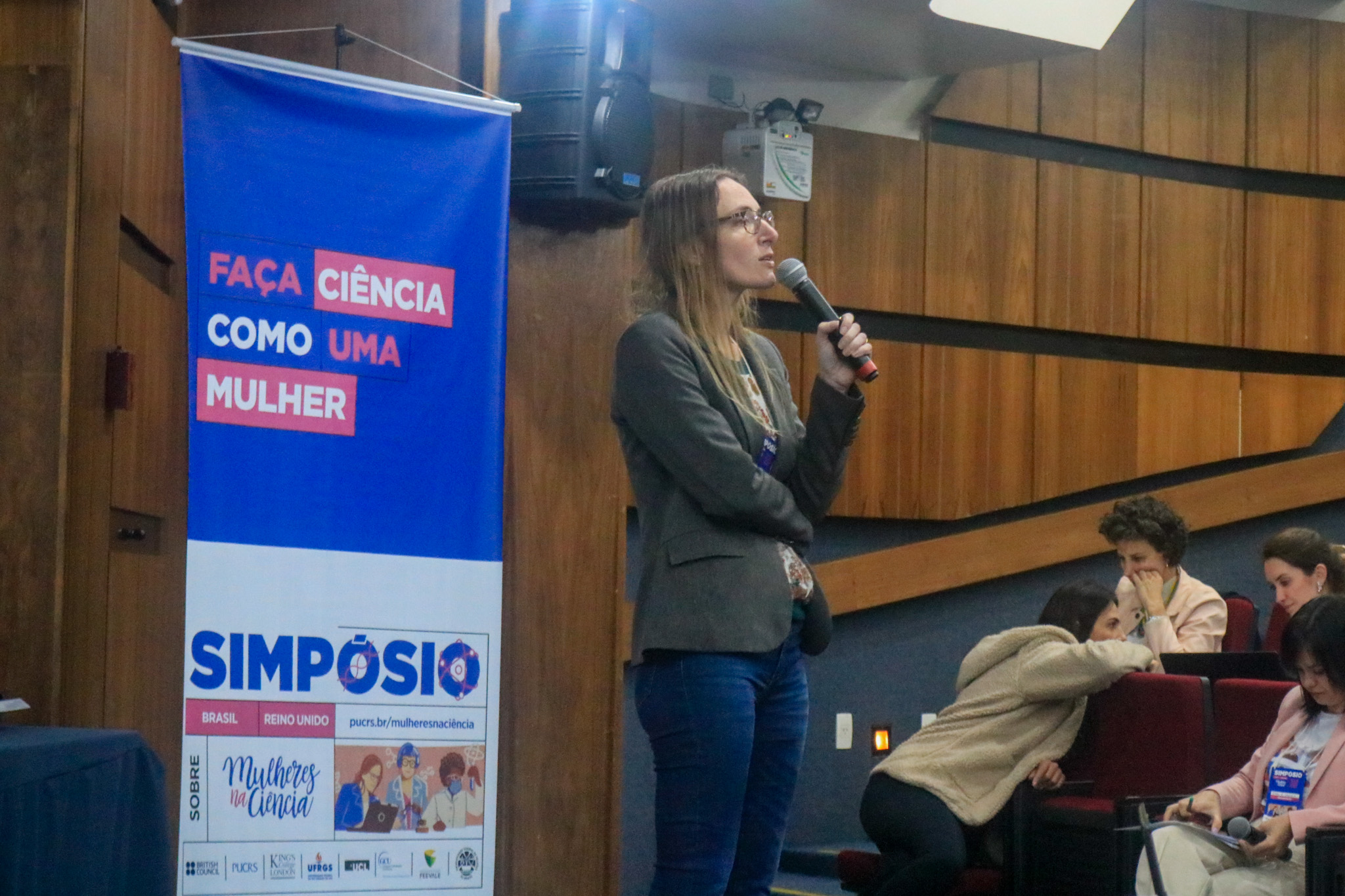
The 1st Brazil-United Kingdom Symposion on Women in Science took place last week, from September 25 to September 27, bringing together female researchers and students from different states in Brazil. In the thematic sessions that made up the event, these such as female representation in areas of science, gender equity in science, challenges and advances were some of the topics discussed.
The event is a part of the Women in Science project, funded by the British Council, which brings together seven universities: King’s College London (KCL), University College London (UCL) and Glasgow Caledonian University (GCU) from the United Kingdom, and the Brazilian institutions UFGRS, PUCRS, Feevale and Universidade Federal de Pelotas. The event in Porto Alegre featured the presence of British professors Andrea Streit (KCL), Patricia Salinas (UCL) and Patricia Munhoz-Escalona (GCU), who worked as mentors throughout 2023 in the project.

In search of equity
In the opening speech, UFRGS researcher Aline Pan asked the participants to define in one word the main challenges of being a woman in science. Words like respect, credibility, time and opportunities were some of the most frequently mentioned in the dynamic. For the professor, the two main issues that need to be faced are: under-represented women in STEM fields (science, technology, engineering and mathematics) and in leadership positions.
Overall, over 20 Brazilian and international lecturers participated in the event. Themes such as planning of prospection of careers in science, fostering an interest in science since childhood, female leadership, race and feminism, motherhood, harassment and inclusion of disabled women were presented, followed by debates with the participants.
In addition to the conferences, representatives of the British Council also participated in the event, with the The Experience of Athena Swan and the Gender Equality Framework in Brazil talk, in addition to a workshop to disseminate the Reference Framework for Gender Equality in Higher Education Institutions in Brazil.
Authorities reinforce the commitment with the theme
In the event’s opening ceremony, representatives of the Offices of the Vice Presidents for Research and Graduate Studies of the four Brazilian universities were present, in addition to the secretary of Strategic Programs and Policies of the Ministry of Science, Technology and Innovation (MCTI), Márcia Barbosa. The Vice President of UFRGS, José Antonio Poli de Figueiredo, highlighted the importance of the constant debate on gender issues in the university and in research. PUCRS’s Dean of Research, Maria Martha Campos, discussed the importance of data collection, another ongoing initiative of the project, as a form of support in creating new institutional policies.
The research and graduate studies assistant from Feevale University, Ana Carolina Kayser, discussed the importance of network with other universities and celebrated the female representation that is already a reality in her institution. Lastly, UFPEL’s Vice President, Flávio Fernando Demarco, highlighted the importance of the debate among all audiences, men and women, to achieve a society that is increasingly egalitarian.
For secretary Márcia Barbosa, who is also a researcher in STEM, spaces such as the Symposium are crucial for us to further the debate and the creation of an increasingly fair scientific space. The guest highlighted the important of public policies that ensure female representation and projects that encourage the interest in STEM fields for girls and women.

Project proceeds with data collection
The Women in Science project began in 2022 with the partnership between PUCRS, UFRGS and KCL and, in 2023, it progressed by included the four new partner institutions. In addition to the symposium, this year’s initiative includes the collection of data on the feminine presence in the participating Brazilian universities.
Feevale, PUCRS, UFGRS and UFPEL are working on this collection, identifying where the female students are at different education levels, in teaching, research and leadership roles. The group intends to analyze this data until the end of 2023.
To learn more about the Women in Science project, visit the website. There, you can find biographies of researchers from the seven universities, where they talk about their scientific journeys and give advice to girls and women who wish to pursue a career in science.
Check out some photos:






